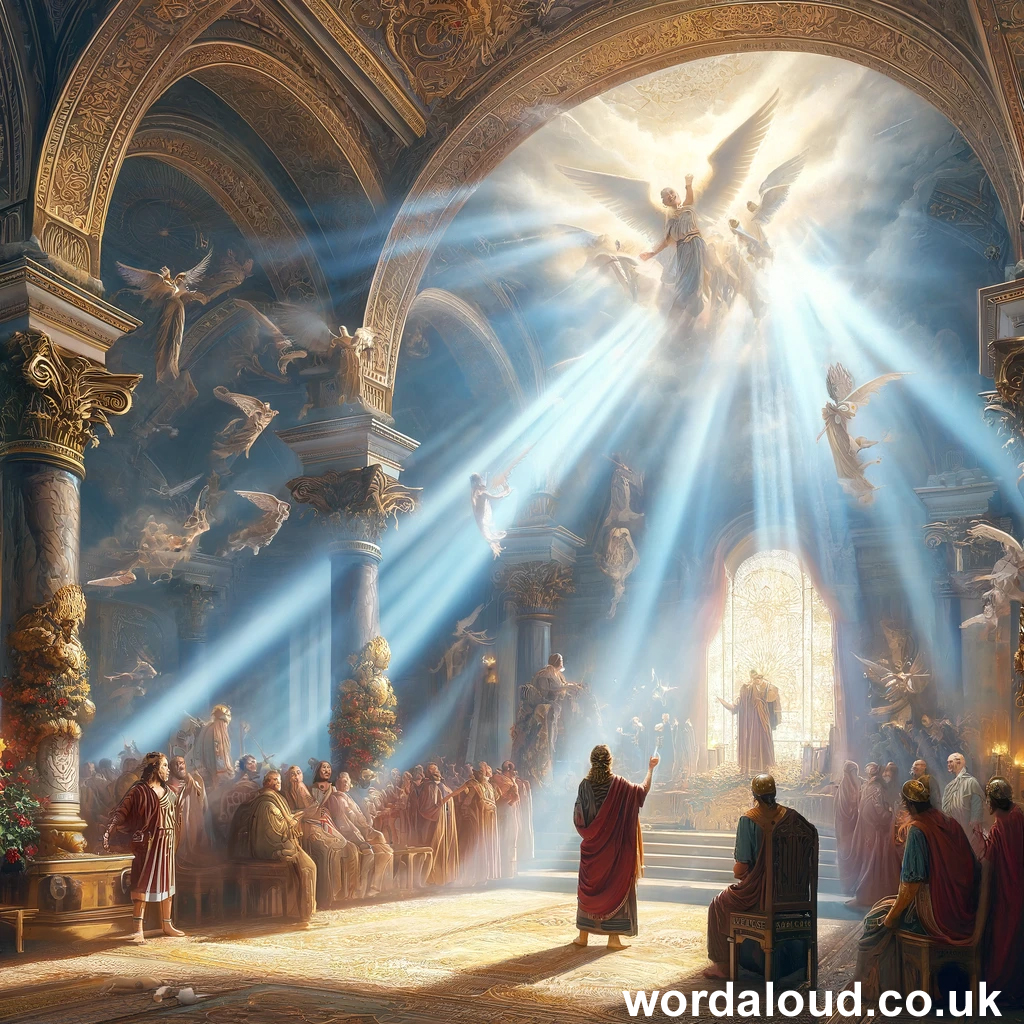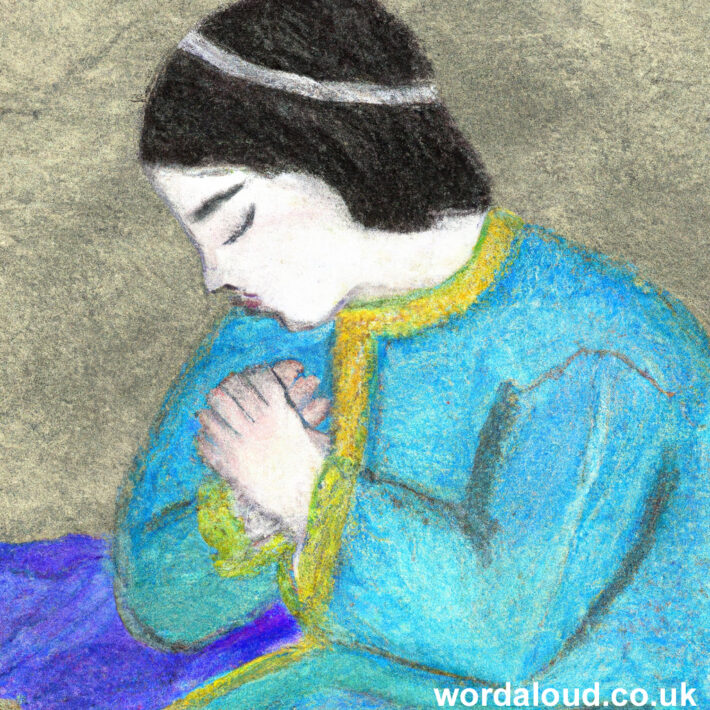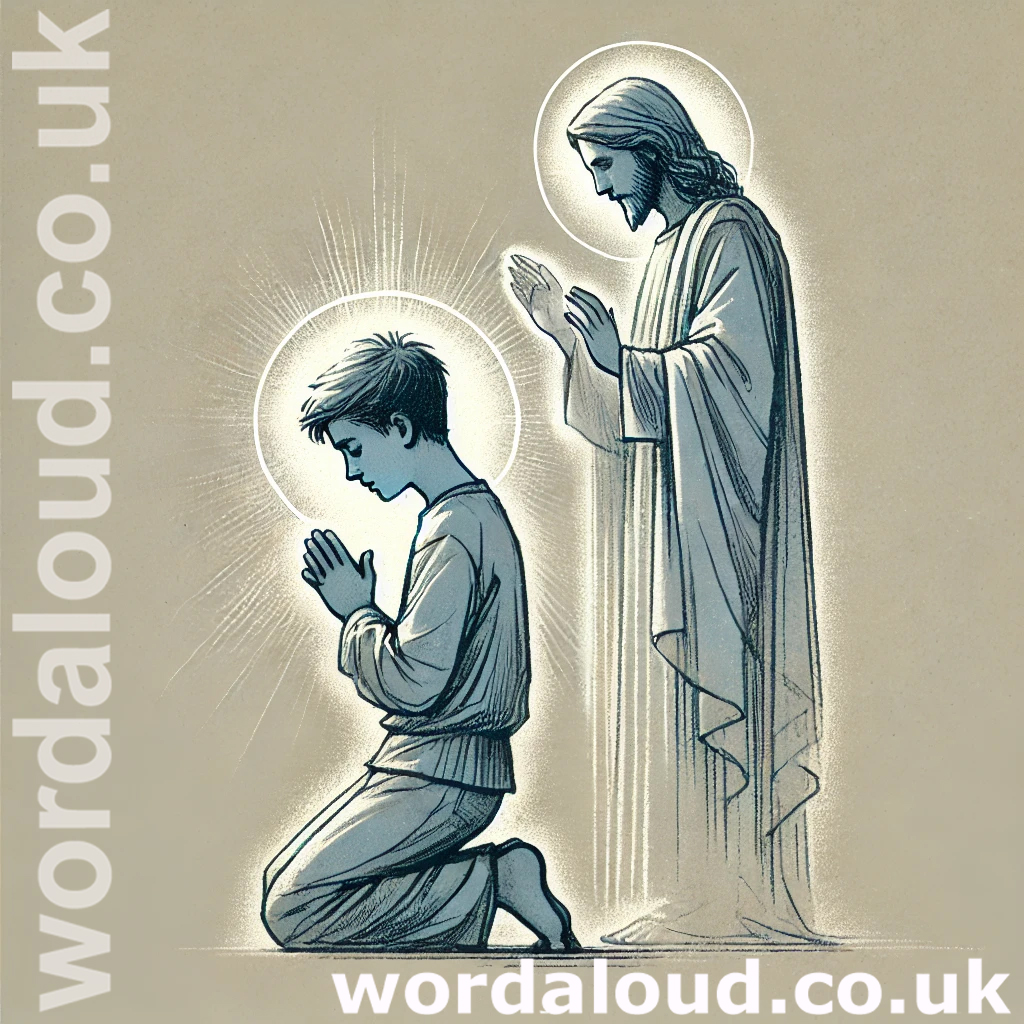Christian Art | Prayer With Jesus | Psalms | Glory And Strength Of Zion | King David As A Boy
Psalm 48 | King James Audio Bible
YouTube: Psalm 48 | Word Aloud | King James Version | Audio Bible
Psalm 48 is a tribute to the city of God – Mount Zion. This psalm extols the greatness of the Lord and splendour of the holy city, portraying Zion as a place of refuge and rejoicing. The psalm underscores the enduring nature of God’s protection and guidance.
A Song of Praise for Mount Zion: Psalm 48 begins with an exultant declaration of God’s greatness and the praise due to Him in the city of God, which is identified as Mount Zion. This ancient city, perched majestically on the northern slopes, is celebrated as ‘the joy of the whole earth’ and ‘the city of the great King’.
A Place of Refuge: The psalm acknowledges God’s presence in the city’s palaces, where God serves as a refuge for His people. The psalm underscores the idea that even in the midst of grandeur, God is a source of solace and security.
The Astonishment of Kings: The psalm narrates the awe-struck response of kings who had assembled against the city of God but were confounded and swiftly retreated. Their fear and hasty departure are compared to the distress of a woman in labour.
God’s Divine Intervention: The psalm credits God with breaking the ships of Tarshish, symbolizing God’s power to overcome formidable adversaries, even those arriving by sea. God’s divine intervention is seen as a testament to His strength and might.
The Eternal City: Psalm 48 asserts the eternal nature of God’s establishment in the city of Jerusalem, assuring that it will endure forever.
Contemplation in the Temple: Within the temple, people meditate on God’s lovingkindness, pondering God’s name and righteousness, which extend to the ends of the earth.
Rejoice and Spread the Word: The psalm encourages the inhabitants of Mount Zion to rejoice and for the daughters of Judah to be glad in light of God’s righteous judgments. It calls on them to explore the city’s towers, observe its defenses, and share its magnificence with future generations.
God as Our Guide: Psalm 48 emphasizes that God is not only the Lord of the city but the eternal guide of His people. He is their God forever and ever, and He promises to lead them even unto death.
Psalm 48 | King James Audio Bible KJV | Love Revealed By Jesus Christ
Great is the Lord, and greatly to be praised in the city of our God, in the mountain of his holiness.
Beautiful for situation, the joy of the whole earth, is mount Zion, on the sides of the north, the city of the great King.
God is known in her palaces for a refuge.
For, lo, the kings were assembled, they passed by together.
They saw it, and so they marvelled; they were troubled, and hasted away.
Fear took hold upon them there, and pain, as of a woman in travail.
Thou breakest the ships of Tarshish with an east wind.
As we have heard, so have we seen in the city of the Lord of hosts, in the city of our God: God will establish it forever. Selah.
We have thought of thy lovingkindness, O God, in the midst of thy temple.
According to thy name, O God, so is thy praise unto the ends of the earth: thy right hand is full of righteousness.
Let mount Zion rejoice, let the daughters of Judah be glad because of thy judgments.
Walk about Zion, and go round about her: tell the towers thereof.
Mark ye well her bulwarks, consider her palaces; that ye may tell it to the generation following.
For this God is our God for ever and ever: he will be our guide even unto death.

Key Themes Of The Psalm For Reflection | Love Revealed By Jesus Christ
- Exaltation of Mount Zion: Psalm 48 exalts Mount Zion, portraying it as a place of great joy and beauty, known as the city of the great King.
- Celebration of God’s Greatness: The psalm is a hymn of praise to God, emphasizing His greatness and His presence as a refuge in the city’s palaces.
- Astonishment of Adversaries: The psalm narrates the astonishment and fear of kings who gathered against the city but were swiftly defeated and retreated.
- Divine Intervention: God’s divine intervention is showcased, symbolized by the breaking of the ships of Tarshish, highlighting His power over formidable foes.
- The Eternal City: Psalm 48 affirms the eternal establishment of God in the city of Jerusalem, emphasizing its enduring nature.
- Meditation on God’s Attributes: Within the temple, the people meditate on God’s lovingkindness, righteousness, and the extent of His influence over the entire earth.
- Rejoicing and Reflection: The psalm encourages rejoicing and reflection on God’s righteous judgments, urging people to explore the city’s towers and share its magnificence with future generations.
- God as Everlasting Guide: It emphasizes that God is not only the ruler of the city but the eternal guide of His people, promising to lead them through all circumstances, even unto death.








